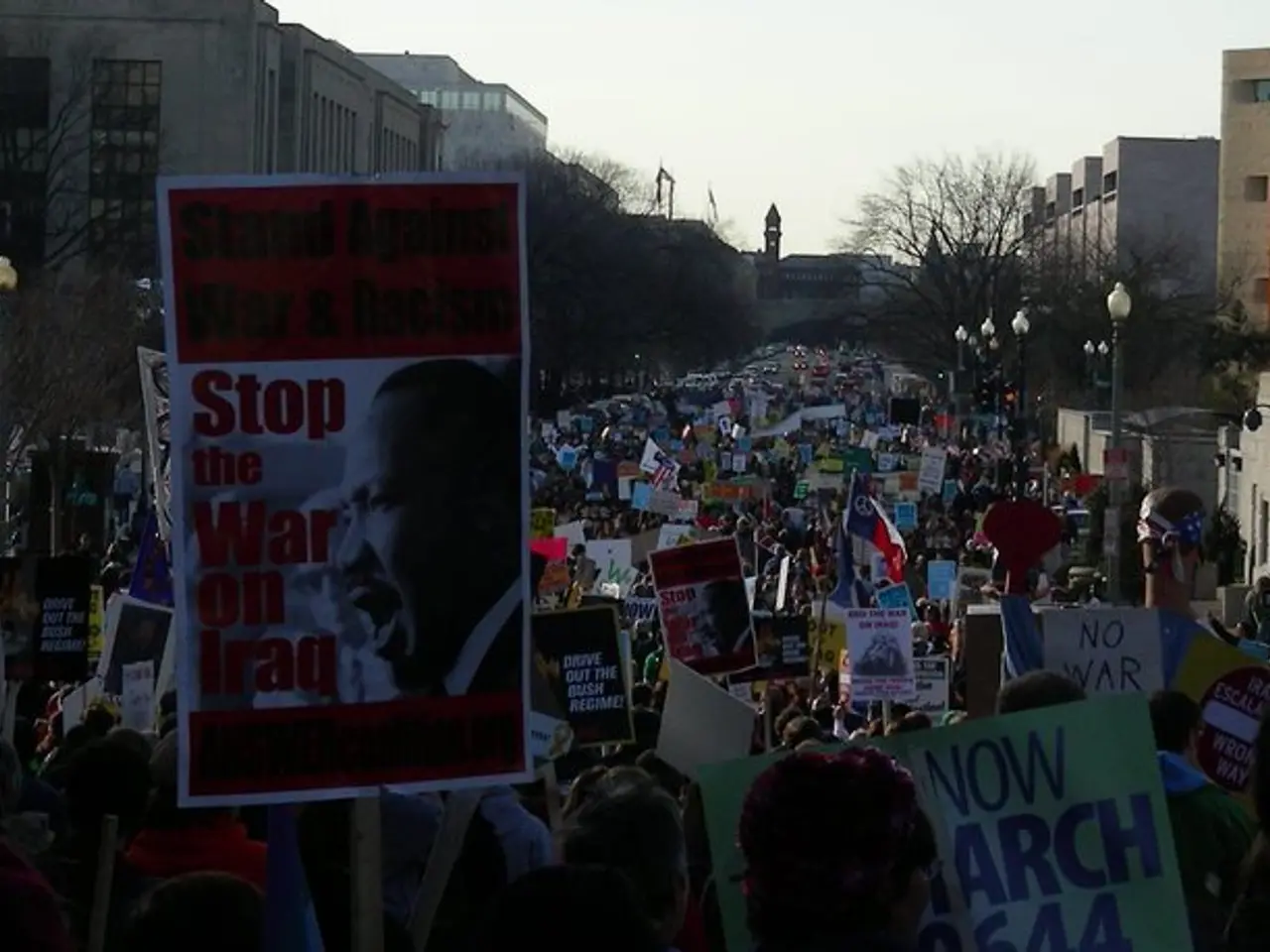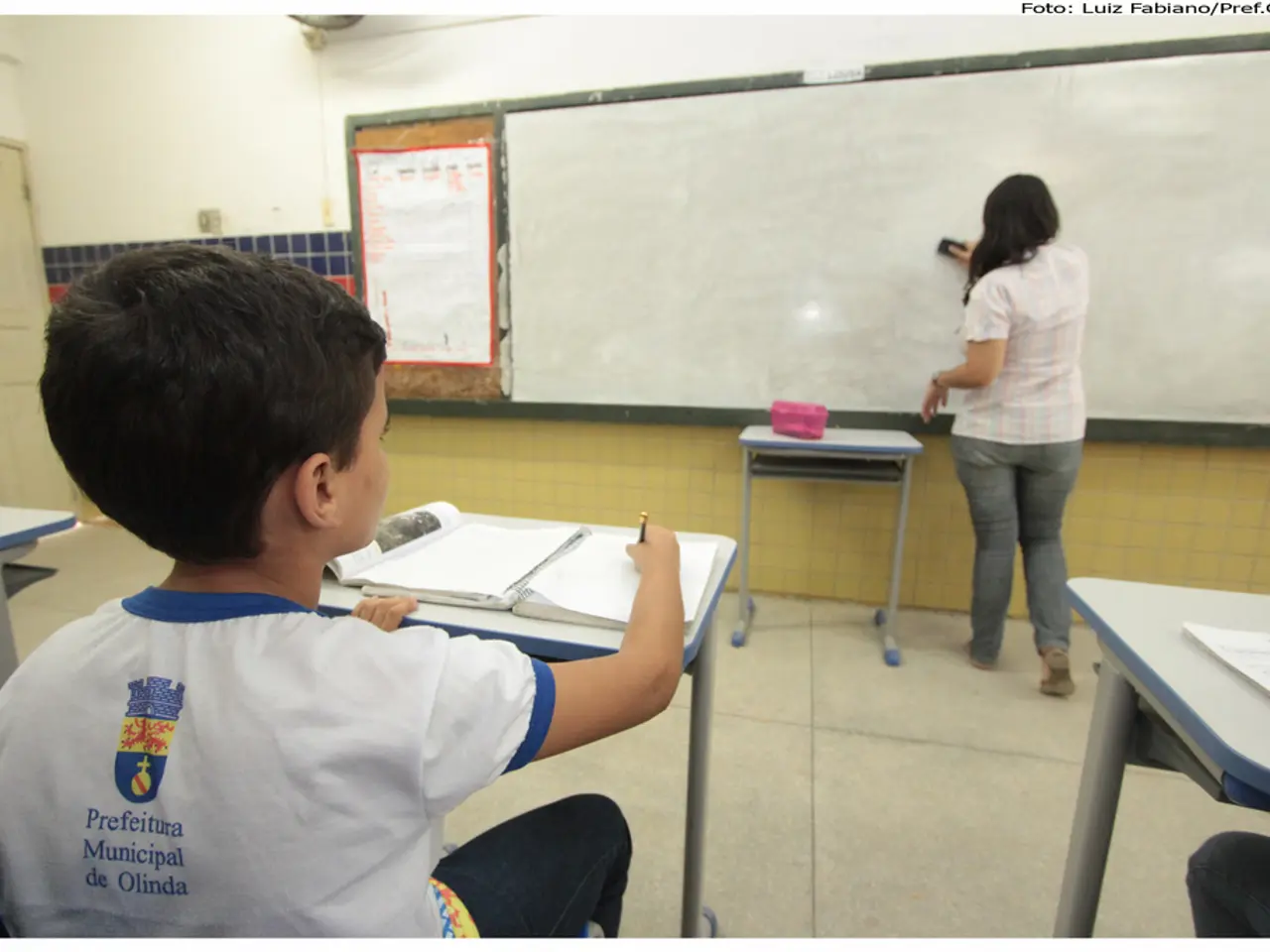Armed personnel from Kenya's Human Rights Commission stage an operation - Gunmen breach Human Rights Commission's main office in Kenya
Since President William Ruto took office in 2022, Kenya has been grappling with a persistent pattern of police brutality and human rights violations, particularly during demonstrations. This troubling trend has been highlighted by multiple incidents, with the latest eruption of protests in June 2025 following the death of a blogger while in police custody[1].
Attacks on demonstrations have emerged as a key feature of these violations, with peaceful protesters, including journalists and civil society actors, facing police repression. Non-governmental organizations (NGOs) and journalists, such as those from the AFP and other media outlets, have played a significant role in documenting and exposing these abuses, despite facing risks themselves[1].
In a shocking incident, armed intruders stormed the Human Rights Commission building in Kenya, threatening people inside and accusing them of organizing demonstrations. These intruders, often referred to as "goons" in Kenya, have been implicated in attacks against protesters[2]. Opposition figures in Kenya accuse the government of funding these groups, while some attackers have openly stated that they were paid by government officials[3].
The government has described the protests as a "failed coup attempt," but this has not quelled the anger directed at President Ruto. The poor economic situation in Kenya continues to fuel this anger, with planned tax increases contributing to the discontent[4]. The President had promised swift economic progress, but his promises have yet to be fulfilled[4].
In an attempt to curb violence and lawlessness, the Kenyan government has destroyed over 6,000 firearms recovered between 2022 and 2025. This measure aims at reducing illegal weapons in circulation, which contribute to violence, including potentially to incidents involving police misuse of force. However, despite these efforts, human rights organizations continue to report police brutality incidents, especially during demonstrations where demands for accountability remain unfulfilled[2][3].
The anger in Kenya has led to violent suppression of demonstrations. In mid-June, hundreds of men armed with batons and whips on motorcycles attacked peaceful protesters, resulting in 19 deaths and hundreds of injuries[5]. Several people remain missing, according to human rights organizations, and attacks on demonstrations against police brutality in Kenya last month have further exacerbated the situation[6].
This ongoing crisis underscores the need for the Kenyan government to address the root causes of the unrest, ensure accountability for human rights violations, and promote peaceful dialogue to address citizens' demands. The international community should also continue to support efforts to uphold human rights and promote democracy in Kenya.
[1] https://www.amnesty.org/en/latest/news/2025/06/kenya-police-violence-fuels-protests-over-blogger-s-death/ [2] https://www.hrw.org/news/2025/07/01/kenya-authorities-must-end-police-brutality-and-hold-perpetrators-accountable [3] https://www.aljazeera.com/news/2025/06/kenya-protests-against-police-brutality-escalate-25-6-2025 [4] https://www.reuters.com/world/africa/kenyan-opposition-calls-protests-over-economic-grievances-2025-06-28/ [5] https://www.bbc.com/news/world-africa-57218174 [6] https://www.afp.com/en/news/1833222
In light of the ongoing police brutality and human rights violations in EC countries like Kenya, there is a pressing need for comprehensive employment policies that prioritize accountability, promote peaceful dialogue, and uphold the rights of citizens, particularly during protests. The general-news surrounding these violations also highlights the political implications, as opposition figures accuse the government of funding groups responsible for attacks on demonstrations.





